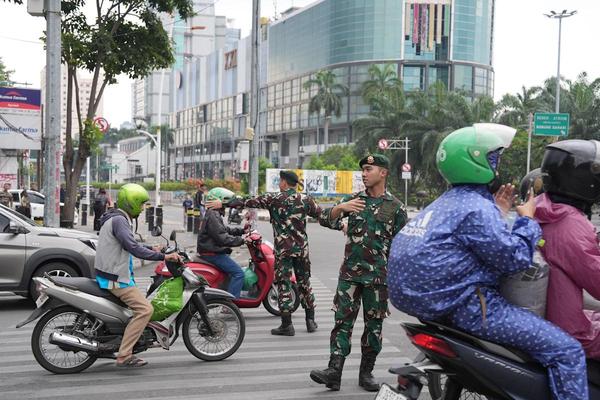
Yahoo Finance.
(Bloomberg) — Indonesian stocks tumbled by the most in nearly five months on Monday, weighed by growing concerns over political instability in Southeast Asia’s biggest market.
Most Read from Bloomberg
The country’s equity benchmark fell as much as 3.6%, led by PT DCI Indonesia and PT Bank Rakyat Indonesia. The move came after protests heightened over the weekend in response to rising living costs and inequality. Meanwhile, the rupiah was relatively steady as the central bank continued its intervention in the currency market to keep it stable.
President Prabowo Subianto canceled a trip to China following the deadly unrest as demonstrators targeted the homes of Indonesia’s finance minister and several lawmakers. In Thailand, politicians are jockeying to lead the next government after the disqualification of Prime Minister Paetongtarn Shinawatra.
The headwinds flared up just as lower valuations and potential interest-rate cuts raised the prospect of a rotation to Southeast Asia by some global funds. Political turbulence raises the risk of foreign investor outflows and pressure on local currencies.
‘Risk Premium’
Indonesia’s “political risk will rise, and so will the equity risk premium,” said John Foo, founder of Valverde Investment Partners Pte. in Singapore. “We are underweight on Indonesia as the valuations do not reflect the underlying issues in the economy.”
Protests there were sparked by outrage over lawmakers’ housing allowances— nearly 10 times the monthly minimum wage in Jakarta — and fueled by tax hikes, mass layoffs, and inflation that have disproportionately hit lower-income Indonesians. On Sunday, Prabowo announced parliament will remove the hefty lawmaker perks.
BNY downgraded its outlook on the rupiah to neutral from positive on Monday, because of the near-term political factors, according to Wee Khoon Chong, a senior strategist in Hong Kong.
“While we think such unrest is likely to be short-lived, investors will no doubt de-risk or increase hedges on their Indonesia portfolios,” he said. “An acknowledgement of discontent and positive social and market reforms toward transparency and equity might restore confidence.”
Meanwhile, Thailand has struggled for decades to overcome political infighting, contributing to slower economic growth compared with regional rivals. Anutin Charnvirakul, a conservative politician, claimed late Friday to have sufficient support from lawmakers to become prime minister, saying the nation must not “come to a standstill.”
Valverde’s Foo was comparatively sanguine about Thailand, citing cheap valuations and the hope that a new prime minister will stimulate the economy. “The market is ready for a change in PM in Thailand,” he said.
For BNY’s Chong, the baht is likely to remain in its current trading range despite the rising political uncertainty, thanks in part to the downtrend in the US dollar.
Persecuted Thai Pro-Democracy Party Now Poised to Play Kingmaker
Indonesia’s stock market attracted a net $676 million from foreign investors in August, according to data compiled by Bloomberg. In contrast, they pulled $670 million out of Thailand. So far this year, Thai stocks have dropped about 10% while the Indonesian equity market is up roughly 11%, achieving a record high before the unrest erupted.
On the currency front, the Indonesian rupiah is one of the weaker performers in Asia this year, down over 2% against the greenback, while the Thai baht has strengthened more than 5%.
“BI intervention may limit the extent of rupiah depreciation, but the risk of further foreign outflows remains if the unrest continues,” said Khoon Goh, head of Asia research at Australia & New Zealand Banking Group.
Long-Term Outlook
Nirgunan Tiruchelvam, an analyst at Aletheia Capital in Singapore, argued the current turbulence in both nations doesn’t “alter the long-term outlook” given the prospect of looser monetary policy and the valuations the bourses offer.
Prabowo has prioritized economic expansion and pursued a populist agenda since coming to power last year, including a massive free meals program, raising some concerns about Indonesia’s fiscal outlook. Another signature initiative is a newly established sovereign wealth fund, Danantara, which oversees nearly 900 state firms and has reported $1 trillion in assets under management.
The president’s policies have yet to alleviate the economic struggles faced by the lower-income population in Indonesia, said Xin-Yao Ng, an investment director at Aberdeen Investments.
“I have remained concerned about the economic trajectory and am waiting to see what Danantara can achieve in this regard,” Ng said.
—With assistance from Matthew Burgess.
(Updates first, second and fifth graph with market moves)
Most Read from Bloomberg Businessweek
©2025 Bloomberg L.P.

Post a Comment
Yorum ekle